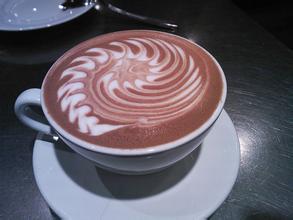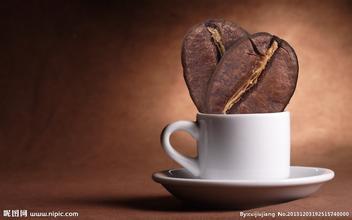The coffee flavor of Ecuador's Hassanda Coffee Garden is mild in taste and with light grass.
The National Congress of Ecuador adopts a unicameral system. There are a total of 124 members, including 15 members from the whole country, 103 from provinces and 6 from overseas. The current Congress was formed in April 2009 and was formally sworn in on July 31 for a four-year term. The seats occupied by various parties in the parliament are as follows: 59 seats for the ruling Sovereign Motherland Movement, 19 seats for the "1 / 21" Patriotic League Party, 7 seats for the Institutional Reform Party, 7 seats for the Urban Movement, 5 seats for the people's Democratic Movement, 5 seats for the Urbanism Movement for National Integrity, 4 seats for the Christian Socialist Party, 4 seats for the Pachakutik Movement, 3 seats for the Rhodos Party, 2 seats for the Democratic left Party, and 9 seats for other parties. The Speaker and Deputy Speaker shall be elected by the plenary session of Congress for a term of two years and shall be eligible for re-election. The current Speaker Fernando Cordero (Fernando CORDERO), the first Deputy Speaker Juan Juan Carlos CASSINELLI and the second Deputy Speaker Rocio Baraleso (Ro í o VALAREZO) the new Constitution stipulates that the former Supreme Court of the country will be replaced by the National Court of Justice (Corte Nacional de Justicia) as the highest judicial organ of the country. The National Judicial Court has a total of 21 judges (including the President), whose President is Carlos Ramirez Romero (Carlos RAMIREZ Romero). The court consists of seven courts, each with a total of three judges. In addition, Ecuador also has a Constitutional Court (Corte Constitucional), chaired by Patricio Pasminio Freire (Patricio PAZMI) O FREIRE, which mainly deals with constitutional interpretation and judgments. Attorney General Washington Persants Munoz (Washington PESANTEZ Mu ñ oz), Inspector General Diego Garcia Carrion (Diego GARC and A Carri ó n) Christian Socialists (Partido Social Cristiano): opposition parties. 1945
Christian Socialist Party logo
Christian Socialist Party logo
It was called the Christian Democratic Party when it was founded, and its current name was changed in 1951. He was in power twice from 1956 to 1960 and from 1984 to 1988. There are 350000 Party members. Represent the interests of entrepreneurs and advocate Christian democracy. Party chairman Pascual Delciopo Aragondi (Pasco á l DEL CIOPPO Aragundi) President Rafael. Correa. Delgado (Rafael CORREA Delgado) Born in Guayaquil on April 6, 1963, he graduated from the Catholic University of Eritrea and received a doctorate in economics from a number of universities in Belgium and the United States. He has taught at the Catholic University of Guayaquil and has served as a visiting professor at the University of San Francisco, the Latin American Academy of Social Sciences and the University of Andes. Served as Minister of economy and Finance from April to August 2005. He has published monographs such as "the fragility of Ecuador's economy" and "the Challenge of Development". He became president on January 15, 2007. In April 2009, Eritrea held a new presidential election in accordance with the new constitution, and Ke was re-elected president. In February 2013, Coe was successfully re-elected and will take office on May 24 and serve until May 2017.
The Arabian Coffee Tree was first introduced to Ecuador (Ecuador) in 1952 and its coffee is of good quality, especially the coffee harvested in early June. Ecuadorian coffee beans can be divided into two varieties: Galapagos and Gigante, both of which have the characteristics of large granules and heavy weight. Ecuadorian coffee can be divided into first class (No.1) and super excellent (ExtraSuperior) according to its quality. They are mainly exported to the Nordic country of Scandinavia Ecuador is one of the few countries in South America that produces both Arabica and Robbins. However, as the land suitable for Arabica coffee trees is decreasing, the production of Robbins coffee is gradually increasing. The best Arabica coffee comes from the Andes, especially the Chanchagu Valley (ChanchamgoValley). The Andes are divided into two mountains, extending from south to north to central Ecuador. When it comes to Ecuadorian coffee, you have to mention the organic coffee in the Galapagos Islands of Ecuador. The Galapagos Islands, a famous tourist attraction, has been declared as a "World Natural Heritage" by the United Nations Educational, Scientific and Cultural Organization (UNESCO). It is extremely rich in products, and organic coffee is one of the unique ones. With its unique ecological environment such as fertile volcanic soil and microclimate, coupled with its cultivation without any chemical fertilizers and pesticides, organic coffee in the Galapagos Islands is recognized as a natural green boutique coffee. This naturally grown coffee is mild in taste, with a hint of grass, fruit and caramel, and is popular with businesses and coffee lovers. Creative coffee made from Ecuadorian coffee beans with unique flavor is also loved by consumers. Mr. Veniso, the champion of the 2014 Ecuador Coffee Competition, won the Ecuador Coffee Competition with his creative formula. One espresso has a fresh and unique taste with mint grass from the Amazon, while the other adds "Rolls-Royce in the Rose" Ecuadorian rose petals, which are full of fragrance, which makes coffee lovers praise.

Important Notice :
前街咖啡 FrontStreet Coffee has moved to new addredd:
FrontStreet Coffee Address: 315,Donghua East Road,GuangZhou
Tel:020 38364473
- Prev

The taste of coffee in Santa Cruz Manor, Ecuador is very balanced and refreshing.
Port Guayaquil is the largest seaport in Ecuador. It faces the Pacific Ocean and backs against Mount Santa Ana. The nearby island of Pune serves as a natural barrier to protect the harbour from storms. There is a wharf in the south, which is more than 900 meters long. Ships from different parts of the world flying various flags are moored in the harbor. The port railway leads to the capital Quito, and highways connect Quito with other cities in the country.
- Next

Introduction of coffee flavor and taste varieties in San Pedro Manor, Puerto Rico with good supple balance
Yaoke Yauco is an area of 176.5 square kilometers in southern Poland, named for its production of Tainos, but local residents prefer to call themselves la Ciudad del Caf (Coffee City) and la Capital Tana (Tainos Center). In the 1860s, immigrants from Corsican improved the cultivation of coffee and pioneered the application of flower stickers to the removal of coffee.
Related
- Does Rose Summer choose Blue, Green or Red? Detailed explanation of Rose Summer Coffee plots and Classification in Panamanian Jade Manor
- What is the difference between the origin, producing area, processing plant, cooperative and manor of coffee beans?
- How fine does the espresso powder fit? how to grind the espresso?
- Sca coffee roasting degree color card coffee roasting degree 8 roasting color values what do you mean?
- The practice of lattes: how to make lattes at home
- Introduction to Indonesian Fine Coffee beans-- Java Coffee producing area of Indonesian Arabica Coffee
- How much will the flavor of light and medium roasted rose summer be expressed? What baking level is rose summer suitable for?
- Introduction to the characteristics of washing, sun-drying or wet-planing coffee commonly used in Mantenin, Indonesia
- Price characteristics of Arabica Coffee Bean Starbucks introduction to Manning Coffee Bean Taste producing area Variety Manor
- What is the authentic Yega flavor? What are the flavor characteristics of the really excellent Yejasuffi coffee beans?

